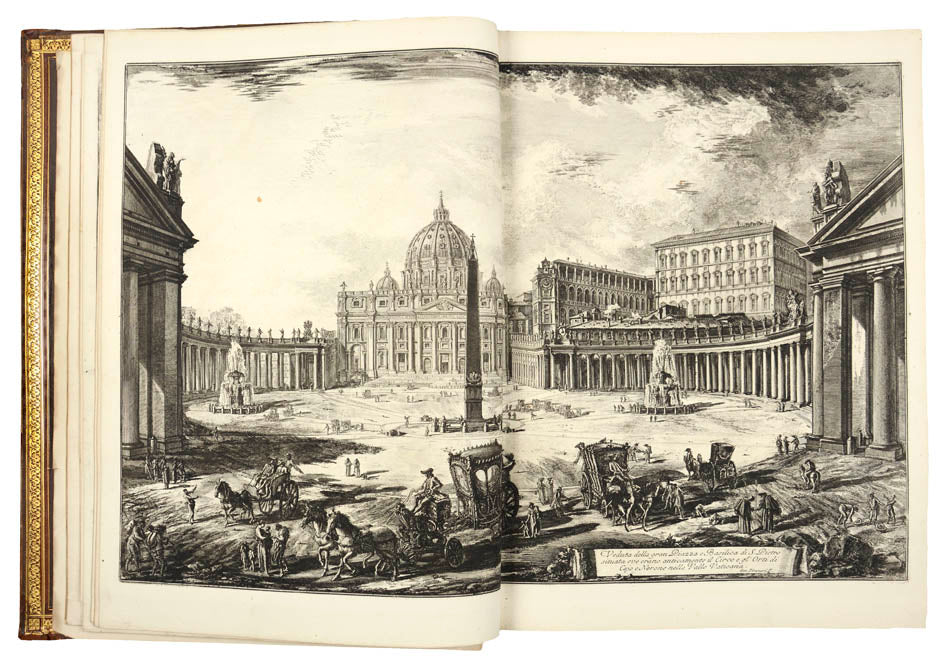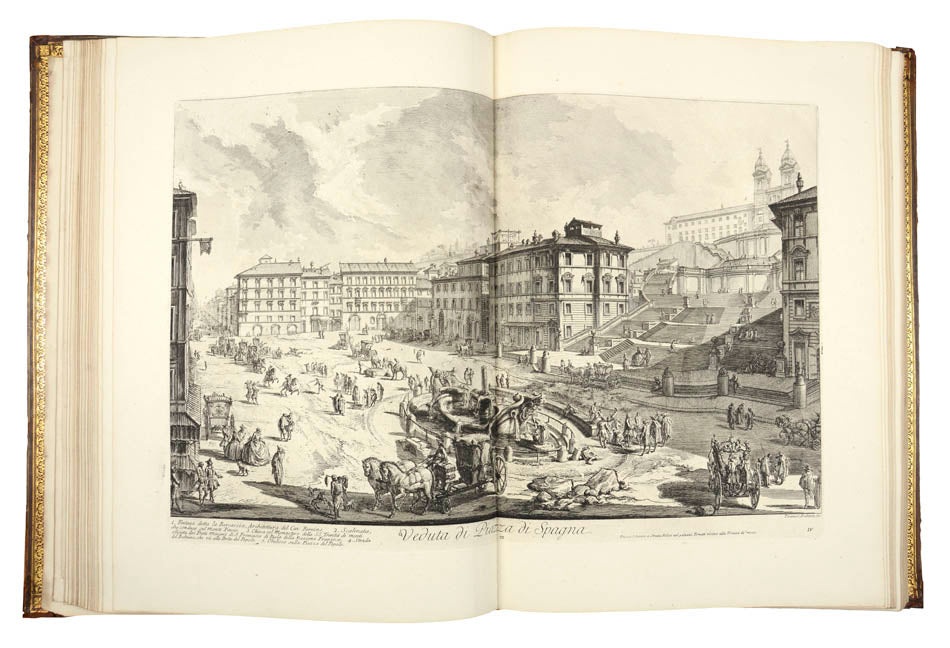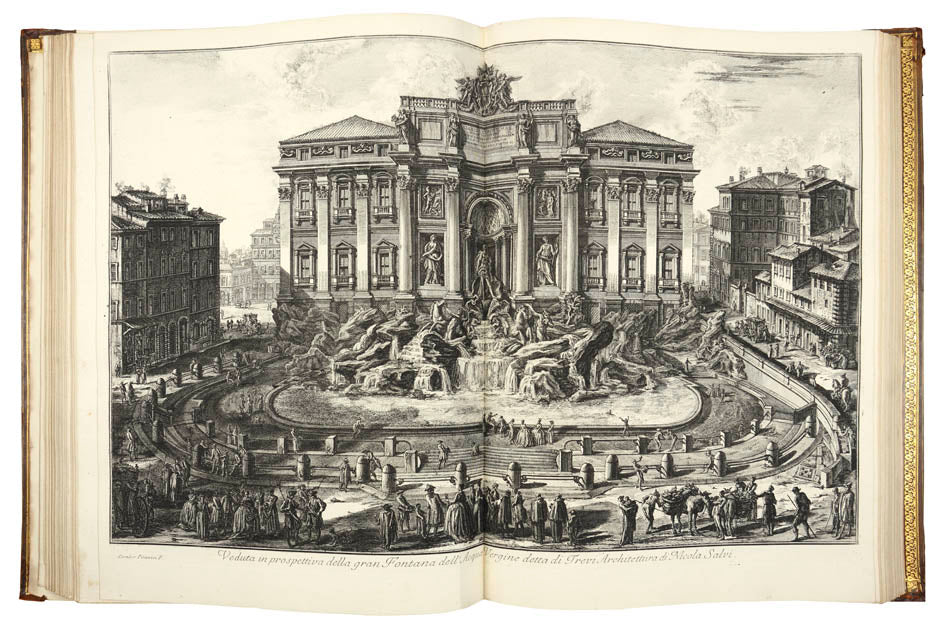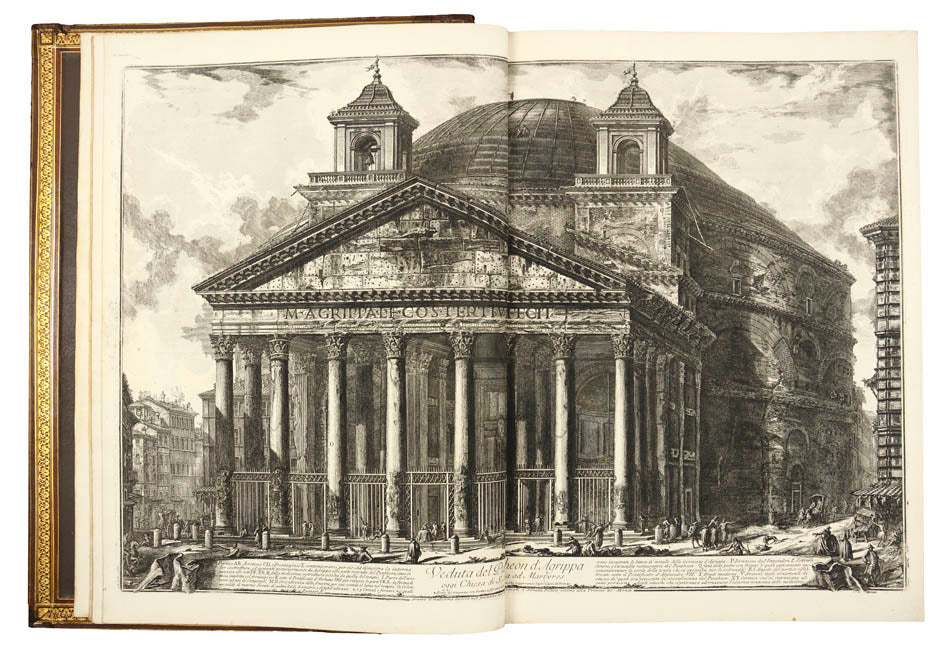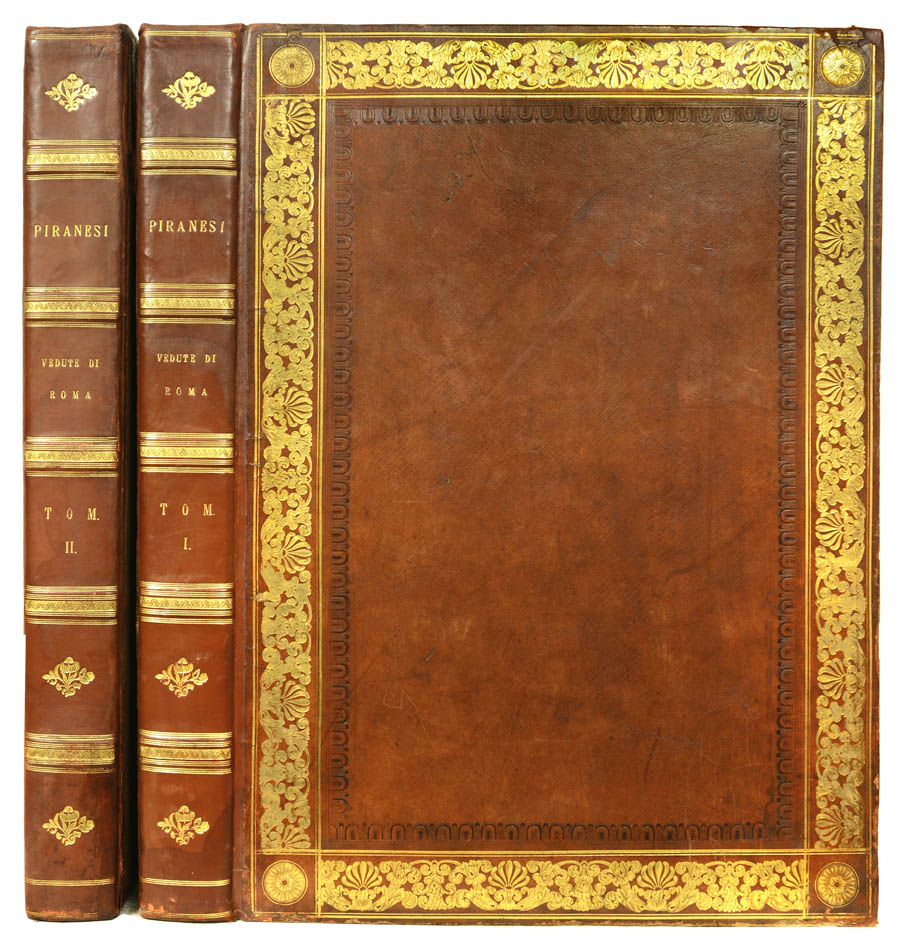Vedute di Roma. [bound with]
PIRANESI, Giovanni Battista.
PIRANESI, Francesco. Topografia delle fabriche scoperte nella cittá di Pompei.
Stock Code 91267
Rome, [Circa 1778 & 1785].
King Gustav travelled to Italy in 1783 buying, amongst other things, a magnificent collection of classical sculptures which are now held in the Museum of Antiquities in Stockholm, Sweden's oldest museum. The King spent the winter in Italy and Piranesi, no doubt eager to curry favour with the royal art lover revised the dedication of Antichita Romane, for the 1784 edition to 'Gustavo III…'
One of the greatest printmakers of the eighteenth century, Piranesi always considered himself an architect. The son of a stonemason and master builder, he received practical training in structural and hydraulic engineering from a maternal uncle who was employed by the Venetian Water Authority; while his brother, a Carthusian monk, fired the aspiring architect with enthusiasm for the history and achievements of the ancient Romans. Piranesi also received a thorough background in perspective construction and stage design. Although he had limited success in attracting architectural commissions, this diverse training served him well in the profession that would establish his fame.
Soon after his arrival in Rome in 1740, Piranesi apprenticed himself briefly to Giuseppe Vasi, the foremost producer of the etched views of Rome that supplied pilgrims, scholars, artists, and tourists with a lasting souvenir of their visit. Quickly mastering the medium of etching, Piranesi found in it an outlet for all his interests, from designing fantastic complexes of buildings that could exist only in dreams, to reconstructing in painstaking detail the aqueduct system of the ancient Romans. The knowledge of ancient building methods demonstrated by Piranesi's archaeological prints allowed him to make a name for himself as an antiquarian. Etching also provided Piranesi with a livelihood, allowing him to turn one of his favourite activities, drawing the ancient and modern buildings of Rome, into a lucrative source of income. By 1747, Piranesi had begun the work for which he is best known, the Vedute di Roma (Views of Rome), and he continued to produce plates for the series until the year of his death in 1778. Piranesi's popular Vedute, which eclipsed earlier views of Roman landmarks through their dynamic compositions, bold lighting effects, and dramatic presentation, shaped European conceptions to such an extent that Goethe, who had come to know Rome through Piranesi's prints, was somewhat disappointed on his first encounter with the real thing (Metropolitan Museum of Art).
Two works in 2 vols; folio (550 x 400 mm. approx.); 'Vedute': the complete suite as listed by Wilton-Ely comprising double-page engraved title, double-page engraved frontispiece, 135 double-page engraved plates (including the 2 plates by Francesco Piranesi listed at the end of Wilton-Ely), the watermarks examined appear to conform to Robison 39, 57, 64 and 67; plate 243 [Wilton-Ely] with paper flaw to the centre fold lower margin, not affecting image; Pompei: the complete suite comprising a double-page engraved plate, a large folding plate and a 6-sheet plan, each sheet large and folding (3 with short marginal tear, repaired, 2 touching text); extra-illustrated with the following plates: 'Pianta di Roma e del Campo Marzio' [Wilton-Ely 1008]; 'Prospetto interiore del Tempio Vaticano Il Santo Padre... Vaticano', both of these by Francesco Piranesi; Near contemporary Russia gilt, the covers with broad gilt borders, neatly rebacked, one spine partly split, all edges gilt, extremities worn.
John Wilton-Ely (Giovanni Battista Piranesi, The Complete Etchings, San Francisco 1994), 134-268 & 1008; cf. Millard (Italian and Spanish Books), 86.
Couldn't load pickup availability
About us
About us
Shapero Rare Books is an internationally renowned dealer in antiquarian & rare books and works on paper.
Our Bookshop and Gallery can be found in the heart of Mayfair at 94 New Bond Street, where most of our stock is available to view and on public display.
We exhibit at major international art fairs, including TEFAF (Maastricht and New York), Frieze Masters, Art Miami and Masterpiece London, as well as antiquarian & rare book fairs including New York, Paris, London, Los Angeles, San Francisco and Hong Kong.




